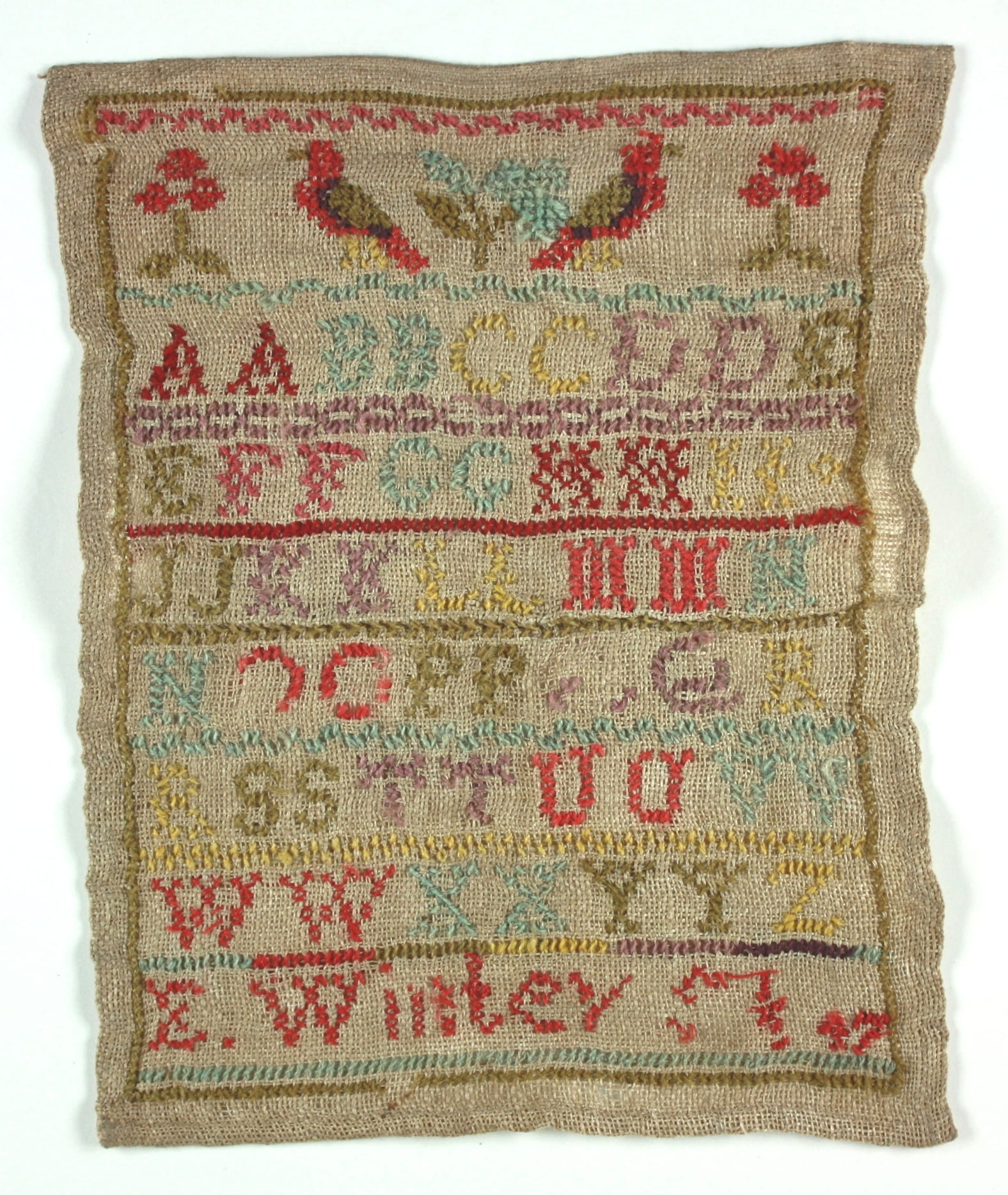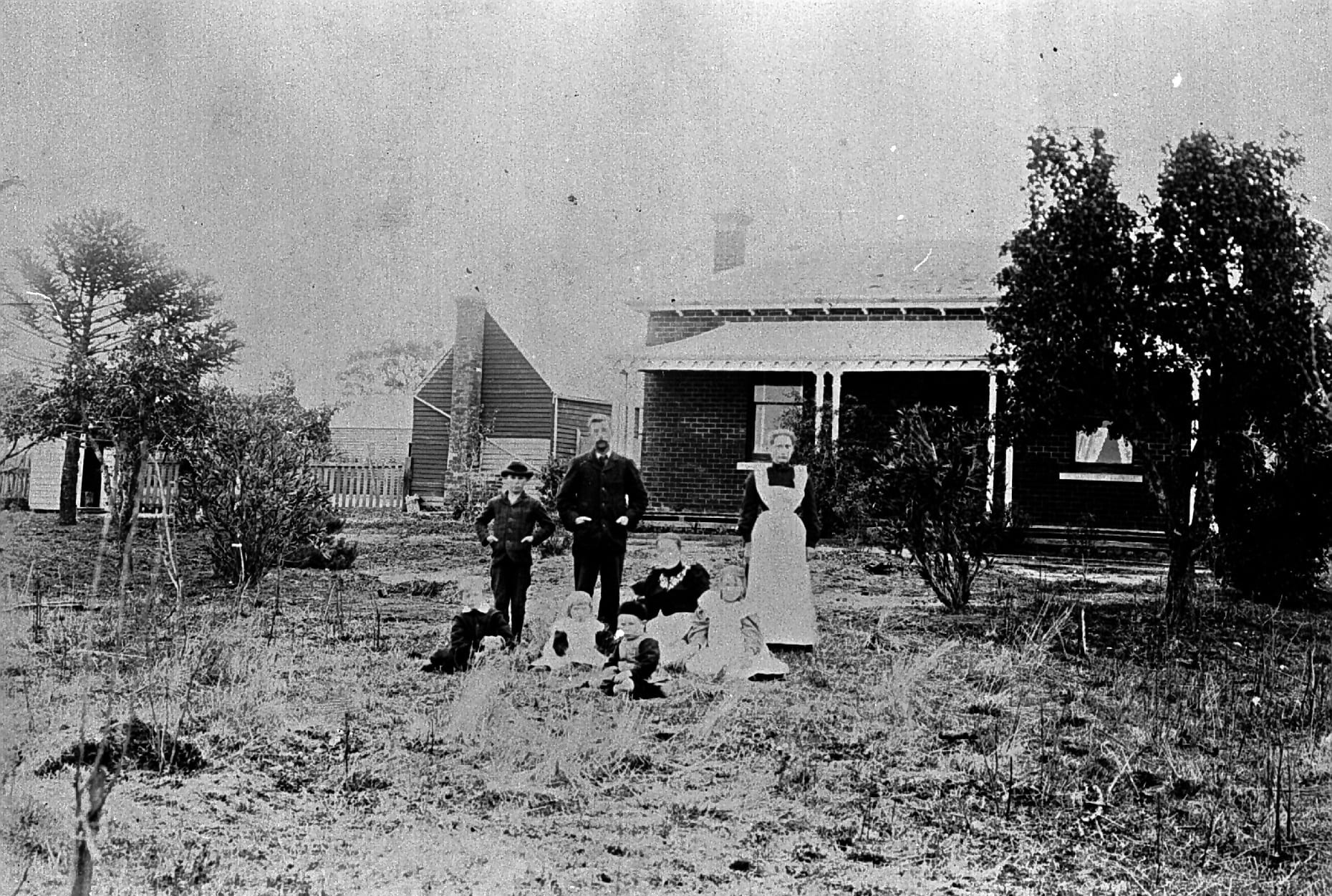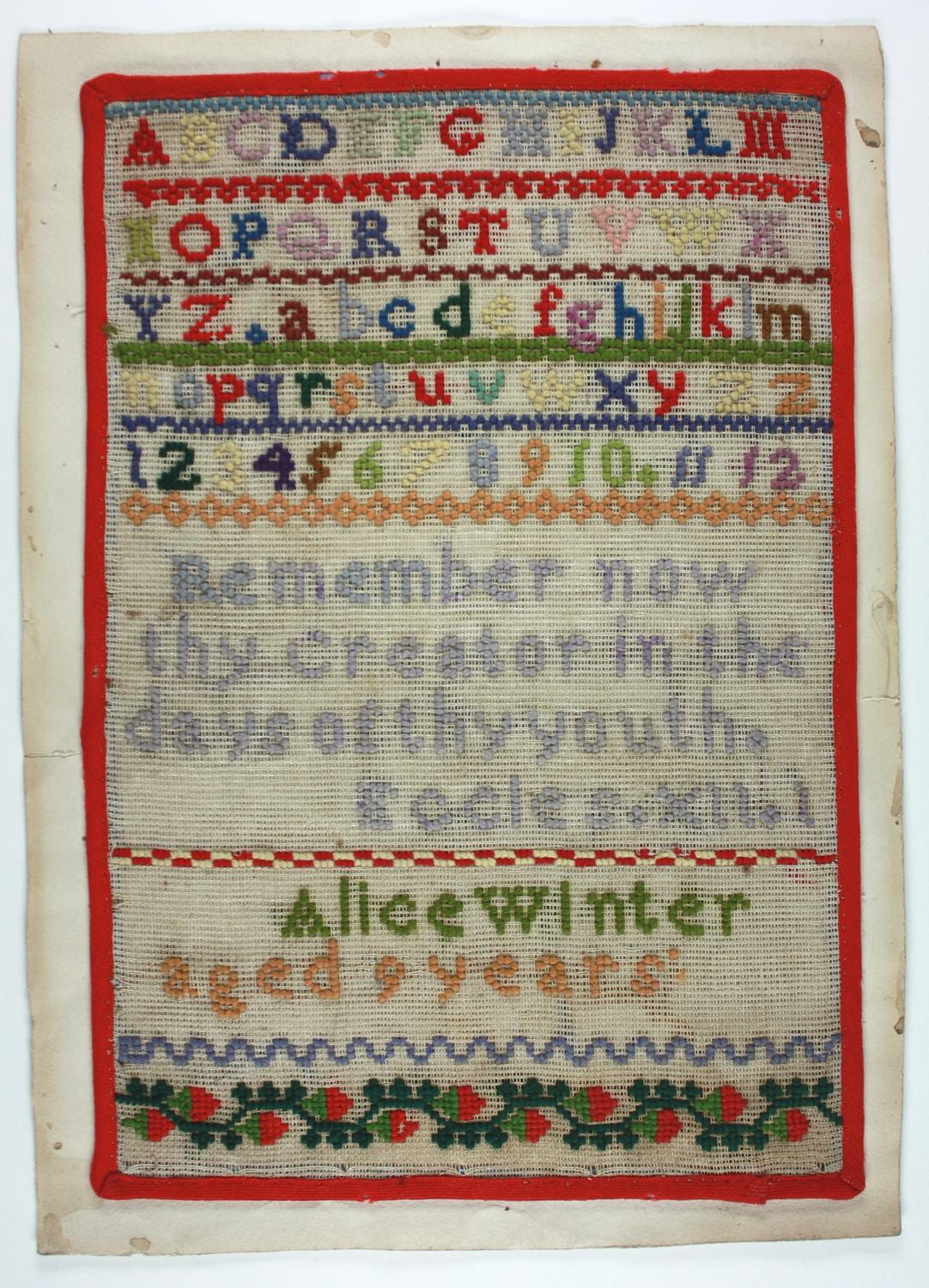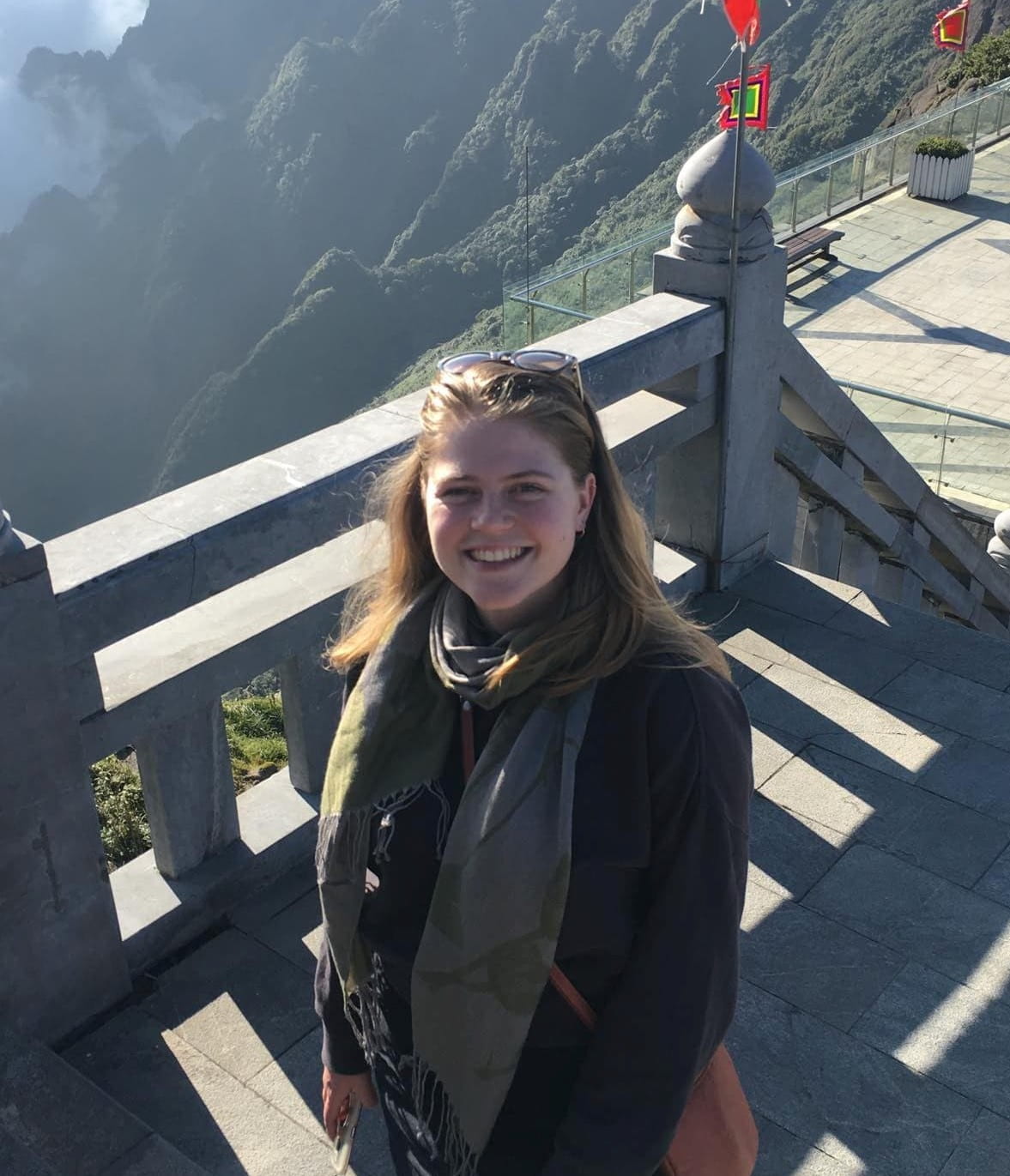
Meet the 2020 Hansen PhD Scholar Cat Gay
The Hansen Trust, established to advance the study of History at University of Melbourne, includes an annual PhD scholarship to the doctoral program in History in SHAPS. The 2020 recipient, Cat Gay, is working to uncover the life stories and experiences of girls in nineteenth-century Victoria through the study of the material culture that they produced. Nicole Davis interviews Cat about her research, her journey, and her aspirations for the future.
What is your academic/other background that led you to postgraduate studies in History?
I moved from Ballarat to Melbourne after school and completed a Bachelor of Arts at the University of Melbourne. I loved my undergraduate degree and majored in History and Art History. I fell into an Honours year, enticed by a trip to New York for a contemporary art history course with my best friend. I’d saved up enough money from my casual jobs and thought a trip to the world’s contemporary art capital would be an amazing way to finish off my time at university.
Little did I know that my Honours year would draw me back into further study. I got sucked into the thesis and really enjoyed the opportunities it offered – delving in-depth into a single issue, going down research rabbit holes, and the creativity afforded in an extended piece of writing. I never expected I would return to pursue graduate research, but after a year off I decided I wanted to pursue a career in the museum industry, and it was time to come back.
Tell us a bit about your intended research for your PhD?
My topic focuses on girls in nineteenth-century Victoria and the material culture (i.e., objects) they used, modified or created themselves. Currently my focus is on the years 1870 to 1900, but I keep finding intriguing items that draw me to earlier decades. Ultimately, I want to explore what girls’ objects can tell us about their lives, moving beyond broader societal attitudes towards girlhood to their lived experience. As many people have been left out of the written record, material culture can provide an important resource for uncovering the stories of marginalised groups in history, like girls. I’m finding that objects can also potentially reveal the creativity, individuality and resilience of these girls.

I also intend to study the collections where these objects are coming from, whether they be from museums, local historical societies or archives. I’m fascinated by how certain objects were deemed worthy of collection and preservation, whilst others were not, and whether and how this can affect historical studies.
What led you to this topic?
My love for museums led me to this topic. I think I unwittingly majored in history and art history because they are both so closely linked to museum studies. Museums fuse my love for objects, whether artistic or otherwise, and history, as artefacts tell history in a museum context. I decided I want to work in this industry when I completed an internship at Museums Victoria in 2017, where I have been volunteering ever since. My subsequent research has been motivated in part by desire to work in museums, as I want my studies to be useful for my future career.
Working with Deb Tout-Smith, Senior Curator of Home and Community at Museums Victoria, introduced me to the topic of nineteenth-century girlhood. I volunteered with Deb on a curatorial project, in which we catalogued a dolls’ house that had been used by three generations of girls from the same family. Under the guidance of my Honours supervisor Dr Kat Ellinghaus (who is now Associate Professor at La Trobe), I transformed my interest in the history of childhood and material culture into a fully-fledged Honours project, which my PhD thesis extends upon.

What does receiving the Hansen PhD Scholarship mean for you?
Along with my love for museums, I have a commitment to and passion for public history. I’ve always been intrigued by history’s manifestations in the wider world, from museums and heritage sites, to popular history books, documentaries, podcasts, and the interpretive panels around my hometown of Ballarat. I’m fascinated by how everyday life is imbued by history, and how often we don’t notice its presence. I believe it’s extremely important that everyone have the opportunity to be involved in learning and writing about history – something which the Hansen Scholarship is bent on achieving.
As an advocate for accessible histories, I’m honoured to have been awarded the Hansen Trust PhD Scholarship in History and continue its work of promoting history to the community. Throughout my studies, I’ve come to the realisation that history helps us to make sense of the world. Where we are now, as individuals and as a society, is a collective culmination of everything and everyone that came before. An understanding of our mutual past is vital to a vibrant, diverse and connected world community, fostering links between contemporary individuals and communities.

My research on girls in nineteenth-century Victoria, with an emphasis on their material culture, fills a significant gap in the history of our state. As an aspiring museum professional, I’m aiming to examine and analyse public collections of girlhood items in novel, insightful ways.
The Hansen Scholarship provides many professional development opportunities, including mentorship from other academics and industry leaders, teaching opportunities, and other chances to disseminate my research and learn from others. I feel so privileged that I can access these amazing opportunities and be guided towards the many paths my research and future career could take.
The Hansen Trust has been established, in perpetuity, to transform the teaching of History at the University of Melbourne. It aims to develop and instil a passion for History within students and the broader community, to deepen student engagement with their learning, to emphasise the importance of this field of study, and to support a range of initiatives in the Faculty of Arts to build excellence and innovation in teaching and learning programs.
The Hansen Trust PhD Scholarship in History provides $35,000 per year for the length of a full-time PhD candidature. A key feature of the scholarship is a mentoring program that provides valuable experience in tertiary teaching and the promotion of History to the community.
*This interview has been lightly edited.
Feature image: Alphabet samplers created by two of the White sisters in the nineteenth century. L to R: “Remember Thy Creator in the Days of Thy Youth”, c1866. Alice Winter. Museums Victoria, HT38899; “Honour Thy Father and Mother and Forget Not All Their Kindness”, c1867. Alice Winter. Museums Victoria, HT38901; with Birds & Flowers, c1846–1853. Eliza Winter. Museums Victoria, HT38738a
